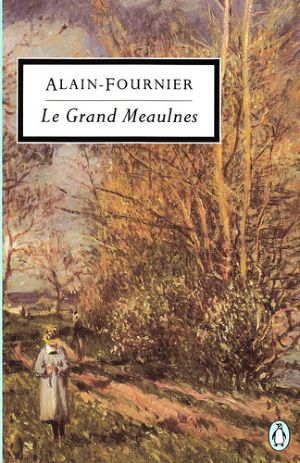What do you think?
Rate this book


206 pages, Paperback
First published January 1, 1913
As soon as he came to board with us, that is, from the first days of December, school was no longer empty in the evening, after four. Despite the cold coming through the open door and the shouts of the sweepers with their buckets of water, there were always some twenty of the older boys after school in the classroom, boys from the country as well as from the village, pressing around Meaulnes. And there were long debates and endless arguments, and I would slip into the group, with a feeling of pleasurable anxiety.
What were Meaulnes’ feelings afterwards as he recalled this moment when, on the banks of the lake, he had so near to his own the face of this girl – a face that was then lost to him! He had stared at that exquisite profile with every atom of his eyes until they were ready to fill with tears. And he remembered seeing, like a tender secret that she had entrusted to him, a little powder remaining on her cheek…
It was about to be my friend’s turn, and I felt as anxious as he must have been. I was getting ready to do the introduction myself. But before I could say anything, the girl went over to him with surprising gravity and firmness.
‘I recognize you, Augustin Meaulnes,’ she said. And she held out her hand.








"Weeks went by, then months. I am speaking of a far-away time - a vanished happiness. It fell to me to befriend, to console with whatever words I could find, one who had been the fairy, the princess, the mysterious love-dream of our adolescence."
"I'm sure now that when I discovered the nameless domain I was at some peak of perfection, of purity, to which I shall never again attain."


A few moments later a strange equipage drew up in front of the glass doors: an outlandish old farm wagon with rounded panels and moulded ornaments; an aged white horse with head bent so low that he seemed to be hoping to find grass in the road; and in the driving seat―I say it in the simplicity of my heart, well knowing what I say―perhaps the most beautiful young woman that ever existed in the whole world.
This little mysterious masterpiece with its astounding simplicity and purity, and its deep sensitivity that is used for showing the feelings and emotions of a little mysterious world full of hope and sadness, has influenced strongly many works after itself.